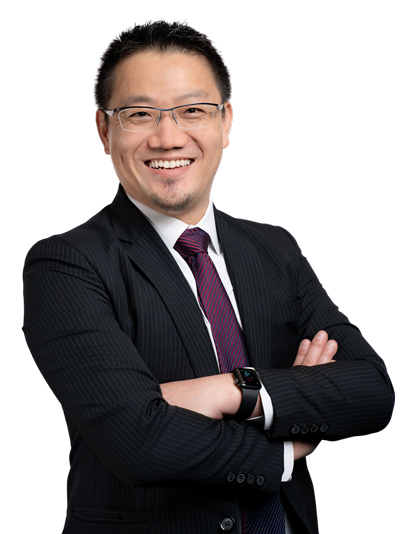
Leaping codes and clouds, to cases and contracts
In an era defined by digital innovation, IT professionals are in high demand and have a wide range of career options available to them. But for those who wish to stand out from the crowd, a postgraduate education in Law provides an extra edge that can open up even more doors.
Studying Law offers an opportunity to develop knowledge and skills that can complement an existing domain. Mastery of both technical and legal expertise gives rise to a competitive advantage when applying for roles or projects requiring both sets of skills.
Completing a postgraduate qualification also conveys professionalism and credibility to potential employers, clients, and colleagues. It demonstrates a commitment to lifelong learning, a preference to think analytically, and a spirit to work through complex problems – all highly sought-after qualities in the modern professional environment.
SMU Master of Laws (LLM) graduate Brandon Kai Yang (who specialised in Cross Border Business and Finance Law in Asia) certainly powered up his journey to personal growth by leveraging legal knowledge to strengthen his IT and Engineering repertoire.
“Digital transformation should never be a superficial strategy that seeks ‘one size fits all’, but customised to each sector’s unique strengths and address their challenges,” explained Brandon, who over a decade ago completed his Master of Computing in Information Technology Project Management from NUS.
“I worked for a government statutory board, focusing on nationwide digital masterplans for the professional services sector. We hoped to embrace technology for efficiency and competitiveness in the local legal practice. Hence, my job scope necessitated deep conversations with senior practitioners.”
He felt it would be fruitful to better understand the key work process and big challenges facing lawyers and counsels, so as to build rapport and gain their trust as “one of us” before introducing any new tools and new methods based on emerging technologies.
“It adds value when I can communicate along a similar frequency, and better connect with the sector with which I was collaborating”, he added.
The future of work must be interdisciplinary
Pursuing a postgraduate legal education can be a catapult for eager minds looking to propel themselves into the upper echelons of their profession. The LLM educational pathway provides students with in-depth knowledge about fundamental principles in Law, and teaches them how to consider complex issues with an expanded spectrum, taking into consideration other fields for cross-pollination of great novel ideas.
Today, critical yet interdisciplinary thinking is no longer a luxury, but an indispensable requirement that corporate warriors must have, to address the problems brought about by rapidly evolving societal trends – in the way a business is construed, in the way a business is conducted, and in the way a business is concluded.
“I am currently in a multinational company focused on client engagements, product sales, and cross-border contracts,” shared Brandon, who also made the Dean’s List during his LLM studies.
“The SMU LLM programme gave me a good foundation in various aspects of contract drafting, especially in terms of risk mitigation and intellectual properties protection.”
Moreover, despite their apparent differences, transitioning from IT to a legal education may involve many shared skillsets and perspectives.
Leaders in the legal field must often have a firm grasp of complex abstract concepts, be innovative problem-solvers, and translate loose wishes into tightened words. Many of these abilities are prized in the world of information technology; consequently, professionals experienced in both industries can often leverage their existing knowledge in a fast-changing workplace.
“My observation is that legal drafting is pretty much like computer coding,” noted Brandon.
“For a start, both solicitors and programmers need to consider the overall structure or architecture of their approach. Both then go on to build a library of reusable function calls and applicable clauses in a way to increase efficiency, and address the definition of terms or variable declarations in a centralised place — which goes to show how relatable programming is to drafting.”
Becoming your best self
Achieving postgraduate dreams and supercharging one’s career are anchored in the choice of university. An ideal institution will offer a comprehensive curriculum tailored to students’ needs and impart essential skills and wisdom. With its specialised line-up of courses, the SMU LLM programme with the Cross Border Business and Finance Law in Asia track features unrivalled academic excellence with both a legal and business advantage.
Brandon reminisced how the Mergers & Acquisitions course, in particular, was filled with mock case negotiations and contract markups that mirrored real-life scenarios.
“My teammates and I worked late into the evenings to prepare all possible ripostes from the opposing counsels as if it were a real multi-million commercial deal in the boardroom,” recalled Brandon.
He also cited the Commercial Mediation course as another favourite, since amicable legal recourse has gained greater traction in recent years over more adversarial court-led adjudication. Furthermore, mediation is an incredibly useful skill for all professionals in any communication setting, that may be encountered throughout one’s career. Whether it’s at an entry-level position or higher up the corporate ladder, these essential negotiation skills help professionals effectively interact with colleagues and clients, and find ways to a win-win situation to build longer-term sustainable business relations.
Ultimately, a legal education is much more than a degree; it’s an entire arsenal of powerful skills and knowledge that can be applied to virtually any career path. Learning the fundamentals of jurisprudence helps students and professionals think critically, develop strong problem-solving mindset, and gain invaluable experience navigating complex systems with deft confidence.
“I’d like to leverage my knowledge and training to deepen the domains I’m interested in,” remarked Brandon.
“This constant search for a professional niche and personal development keeps me energised. I hope my peers find their own pathway that leads to career satisfaction, as I have.”